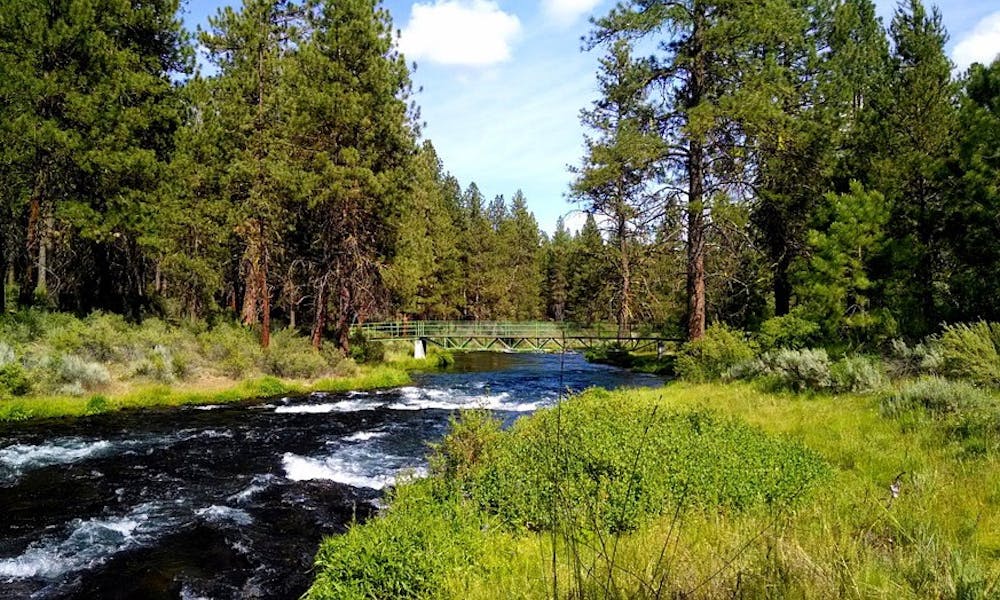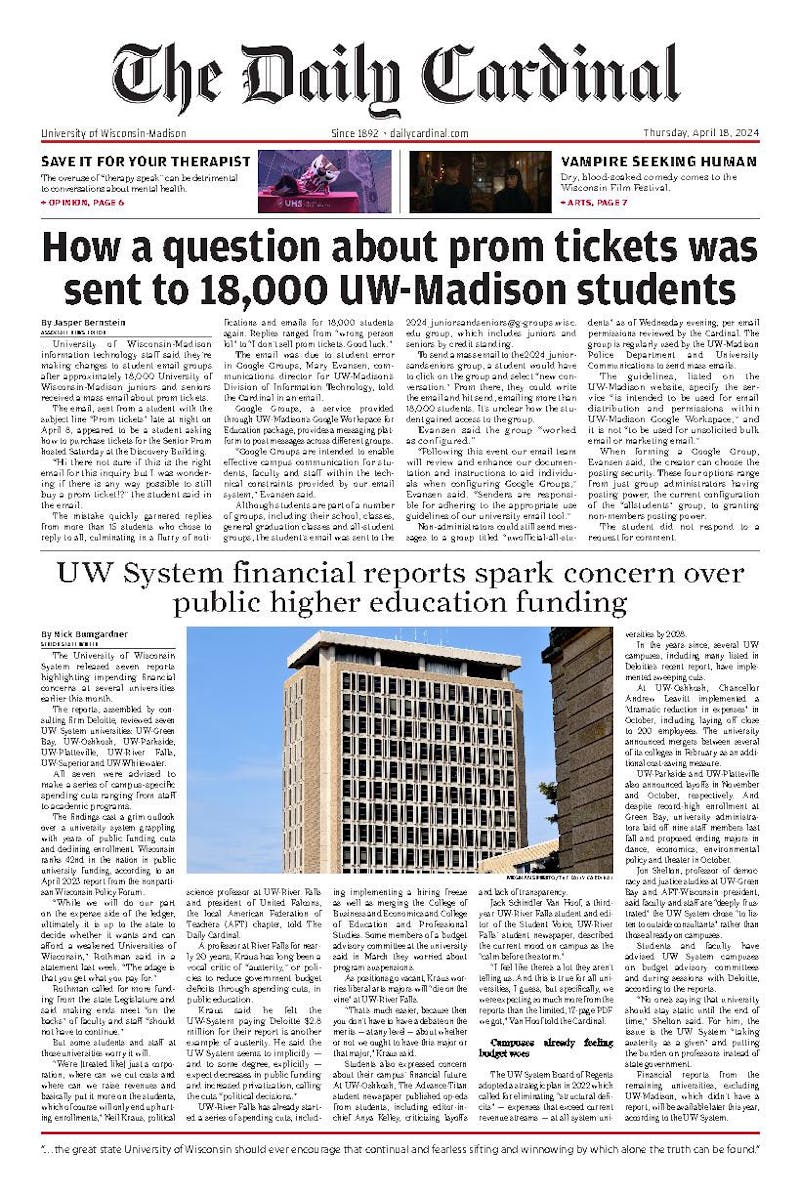Wisconsin’s commitment to environmental conservation, long a critical component of state politics, has taken a backseat in this age of budget cuts under Gov. Scott Walker. The examples set by pioneer Wisconsinites such as Aldo Leopold, John Muir and Gaylord Nelson are fading from memory as polluters go unpunished and government agencies charged with protecting the state’s natural resources are gutted.
Walker’s promise to balance the budget has resulted in a period of exploitation of our cherished public lands. Fines for polluters dropped 78 percent from 2014 to 2015, setting a dangerous precedent that will only encourage polluters to continue to disregard the health of the environment.
With at least two more years with a Republican governor and state legislature—neither of which displays any interest in protecting the state’s land and wildlife—and toothless conservation agencies, the future looks bleak.
There is a hope, however, that businesses will start to regulate themselves. Environmental conservation has always been perceived as antithetical to increasing profits. Companies in various industries, by polluting and depleting natural resources, believe they can increase their profit margins.
It appears, however, that businesses are slowly realizing that taking account of the environmental impact they have is a more profitable long-run strategy than unmitigated exploitation of natural resources.
Natural capital—the world’s natural assets and the value they provide to humans—has often been used in a vague sense to exemplify the importance of conserving resources.
Businesses, however, rarely take natural capital into account when making decisions, as there has traditionally been no agreed-upon way to assign tangible value to such a vague idea. A new development in the conservation community, however, may put an end to these discrepancies and provide concrete solutions to environmental issues.
The Natural Capital Protocol is a recently introduced system that allows businesses to make informed decisions about their operations and the impact they have on the world around them. It helps to cut raw material costs, foresee future legislation and preemptively take action to meet regulations that aren’t in place yet.
It also improves their image in the long-term and responsibly protects local communities, according to the Natural Capital Coalition. It helps inform business leaders to make better decisions that will benefit both their profit margins and the environment, allowing for a more sustainable economy to emerge without government regulations.
Various national corporations have joined the effort to implement the protocol, including Coca-Cola, Shell and Walmart, along with dozens of other businesses worldwide.
These businesses have made a pledge to work to value environmental assets in the same way they value various other entities in their decision-making processes.
So what does this have to do with Wisconsin’s economy? Despite slashed conservation budgets and reduced environmental regulation enforcement, many businesses that call the state home may realize that following the protocol and taking account of their environmental impact will actually be more profitable in the long-run than unimpeded growth. This hope can assuage fears of widespread environmental degradation: Many businesses may decide that self-governance and responsible resource management is a more profitable option in the future, with or without governmental regulations.
Of course, we cannot assume that businesses will make this realization, and without fear of punishment for transgressions against the planet, many will continue polluting. But the economy is moving in the right direction, and as more and more companies buy into this new way of thinking, more and more people will be convinced that being environmentally responsible is the right thing to do—and the profitable thing to do.
In many ways, the failure to enforce environmental laws and cutting the budgets of state conservation agencies poses a long-term threat to Wisconsin’s natural environment.
This laissez-faire approach to government is unsustainable. But the hope is that with the help of the Natural Capital Protocol and a prevailing wisdom that saving the planet is good for business as well as the environment, the damage can be limited until progressivism and responsible environmental stewardship is brought back to Madison.
Sebastian is a sophomore majoring in environmental studies and history. Do you agree with him that Wisconsin Republicans do not value our public lands? Do you think that businesses will begin to self-govern on environmental issues? Please send all comments, questions and complaints to opinion@dailycardinal.






